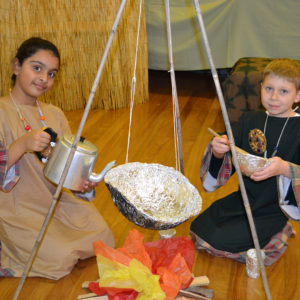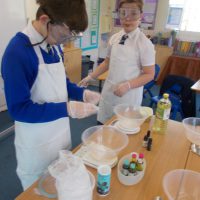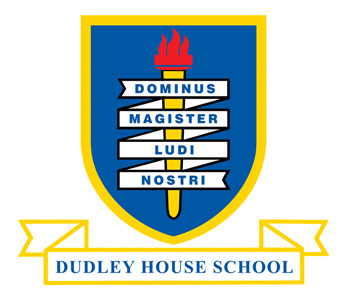Curriculum

At Dudley House our curriculum is designed to provide a rich and varied programme of activities and learning experiences to meet the needs, interests and aspirations of all our learners and embed knowledge in long term memory. We want our curriculum to be exciting, interesting and engaging so that children are curious, inspired and enjoy learning.
Our curriculum provides children with rich and varied learning that enables them to try new things and to find and develop their passions and talents. We believe the curriculum we offer should fire children’s imagination and be challenging, yet enable all children to feel success, no matter what their ability or interests. It should promote in children a self-belief and self-confidence and provide opportunities for children to lead.
Basic Principles
- Learning is a change to long term memory.
- Our aims are to ensure that our pupils experience a wide breadth of study and have, by the end of each key stage, long term memory of an ambitious body of procedural and semantic knowledge.
Intent
Our curriculum is designed with three goals in mind
1. To give pupils appropriate experiences to develop as confident, responsible citizens;
2. To provide a rich ‘cultural capital’ and make learning relevant and purposeful;
3. To provide a coherent, structured curriculum that leads to sustained mastery.
We follow ‘The Early Years Foundation Stage Curriculum’ and ‘The National Curriculum’. However, we have developed a bespoke, broad curriculum that promotes the aims and values of our school and serves the needs of our children and families. This is based on the Chris Quigley Essentials Curriculum, Herts for Learning guidance, PSHE framework and the Encounter Bible Curriculum, as well as our school’s priorities.
Curriculum Drivers
As a school we believe there are four curriculum drivers that help shape and personalise our curriculum breadth. They are derived from an exploration of the backgrounds of our pupils, our beliefs about high quality education and our values. They are used to ensure that we give our students appropriate and ambitious curriculum opportunities. These are:
Challenge: we want our children to be effective communicators, able to use their initiative, show growing independence, resilience, responsibility and perseverance when solving problems individually and when working collaboratively.
Communities: we want our children to understand, appreciate and care for our world; be respectful; sensitive to the needs of others and be willing to make a positive contribution to our school, our local community, our country and the world.
Spiritual & moral: as a church school and a loving Christian family the spiritual development of our children is all important as is their personal, social and moral development that will enable them to be outstanding citizens.
We want our children to grow up loving our world, feeling a valuable part of it, knowing they have a contribution to make. We want our children to have a strong moral compass and social skills to interact successfully with others. We recognise and respect the range of beliefs and cultures within our world and enjoy learning about other faiths, whilst also developing a deepening understanding of a God who loves and cares for them.
Enrichment: we want our children to be motivated and excited by learning through engaging in a curriculum enhanced with visits and visitors. We want them to have a wealth of experiences that will enhance their knowledge and vocabulary by experiencing a rich cultural capital.
Cultural Capital
Cultural capital gives our students the vital background knowledge required to be informed and thoughtful members of our community who understand British values. We have planned a range of experiences throughout their time at Dudley House to ensure that children have a rich cultural capital knowledge. (see ‘50 experiences + for Children at Dudley House’, vocabulary lists and book spines)
Curriculum Breadth
This is shaped by our curriculum drivers, cultural capital, subject topics and our ambition for students to study the best of what has been thought and said by many generations of academics and scholars.
Our curriculum distinguishes between subject topics and ‘threshold concepts’. Subject topics are the specific aspects of subjects that are studied.
Threshold concepts
Threshold concepts are the big enduring ideas that shape students thinking within each subject. They tie subject topics into meaningful schema. We have identified threshold concepts that children will keep revisiting throughout their time at Dudley House to ensure that they develop knowledge and commit it to their long-term memory.
The same threshold concepts are explored in a wide breadth of contexts so that they have tangibility and meaning. They are explored in every year group and students gradually build up an understanding of them over time.
Milestones
Milestones clearly define the end points for the threshold concepts. They include the procedural and semantic knowledge children need to understand the threshold concepts. They are the goals pupils should reach to show they are meeting the expectations of the curriculum. These milestones provide our progression model for most subjects.
Over a two-year period, students will become more and more familiar with this knowledge by exploring them in a breadth of contexts. In reading, writing and maths however, these have been split into year group expectations.
Within each milestone, pupils gradually progress in their procedural fluency and semantic strength through four cognitive domains: emerging, developing, securing, exceeding.
As part of our progression model we use a different pedagogical style in each of the different cognitive domains of emerging, developing, securing, exceeding. We use direct instruction in the emerging domain and problem-based discovery in the exceeding domain.
Also, as part of our progression model we will start to use POP (proof of progress) tasks which will show our curriculum expectations in each cognitive domain.
Our curriculum
Our curriculum builds progressively on from the learning in the Foundation Stage. The milestones (1, 2 and 3) that are built into our curriculum complement our mixed age class structure. The curriculum is aligned to the National Curriculum and goes beyond National Curriculum requirements in each milestone.
Our curriculum is planned to include:
1. A list of the breadth of topics that will be studied for each year group.
This ensures each teacher has clarity as to what to cover. It also provides key knowledge within subjects and ideas to develop cultural capital.
2. The threshold concepts that learners should understand and explore in a breadth of contexts.
Concepts are chosen to build conceptual understanding within subjects and are repeated in different contexts over and over.
3. Criteria for progression of Milestones within the concepts.
The procedural and sematic knowledge needed to make sense of the concepts for that age group.
4. Criteria for depth of understanding.
We expect pupils in the first year of the milestone to be developing an understanding of the concepts and secure their understanding of the milestone by the end of the second year. However, children who are able to use and apply their knowledge fluently in a range of contexts will exceed expectations.
Our curriculum is based on carefully sequenced learning – a progression model where children build on previous learning. We plan for progress in all subjects and assess against clear milestone and year group criteria.
Implementation
Our curriculum design is based on evidence from cognitive science: three main principles underpin it:
1. Learning is most effective with spaced repetition
2. Interleaving helps pupils to discriminate between topics and aids long term retention.
3. Retrieval of previously learned content is frequent and regular, which increases both storage and retrieval strength.
In addition to the three principles we also understand that learning is invisible in the short term and sustained mastery takes time.
Our content is subject specific. We make intra-curricular links to strengthen schema.
Continuous provision, in the form of daily routines, replaces the teaching of some aspects of the curriculum, and in other cases, provides retrieval practice for previously learnt content.
EYFS Curriculum
Children in our Nursery and Reception follow the Early Years Foundation Stage Curriculum (EYFS). The EYFS Curriculum has seven main areas of Learning:
-
- Personal, Social and Emotional Development
- Communication and Language
- Physical Development
- Literacy (Reading and Writing)
- Mathematics
- Understanding the World
- Expressive Arts and Design
We are ambitious for our children and encourage learning at every opportunity. A practical, playful approach to learning, based on the needs and interests of all our children, is delivered through topic-based planning and the development needs of our children. We teach children individually, in small groups and as a class. Through a combination of teacher input and continuous provision opportunities, learning is planned to encourage children to develop their learning independently through exploration and challenge.
The ‘Characteristics of Effective Learning’ are at the heart of the Early Years Curriculum and explore the different ways in which children lean. They highlight the importance of playing and learning, active learning and thinking critically. All the learning experiences we plan for the children allow them to utilise and develop these skills. Our learning environments, both inside and outside, are stimulating and exciting, and relevant to the needs and age/stage of our children. Resources are easily accessible, developing children’s ability to access the curriculum independently. This enables us to meet the unique needs of our richly diverse pupils.
KS1&2 Curriculum
Our curriculum is planned around a series of themes which provide meaningful contexts to develop threshold concepts. These are set out in the 2-year long term curriculum plans for each mixed aged class. There are times though when our long-term curriculum plans are adapted and changed to meet the cohorts and needs of the pupils within the school.
Each class’s termly overview gives a brief summary of the areas of learning that will be covered and also specifies how the four curriculum drivers will feature. These plans are then developed in more detail to specify:
-
- Subject threshold concepts and milestones developed through the theme in: history, geography, science, design technology, art, dance.
- Learning opportunities across the curriculum in communication, reading, writing, mathematics and personal development.
Maths, English and other subjects not covered through the theme are taught discreetly.
Staff then plan a sequence of learning for each subject where they develop understanding of the subject’s big ideas (threshold concepts) and semantic and procedural knowledge for the milestones.
For English and Maths, we use HfL criteria based on the National Curriculum. To ensure maths concepts are developed systematically through the school we use the HfL Essentials maths plans from Reception to Year 6.
For Science and most Foundation subjects we use the Chris Quigley Essentials Curriculum. This covers everything that the National Curriculum states must be taught, and breaks the curriculum into threshold concepts and knowledge that needs to be learned in different age groups.
For computing, we follow the National curriculum and utilise a variety of resources.
For PSHE & RSE we use the PSHE association programmes of study and thematic model.
For Religious Education we follow the Encounter Bible Curriculum, as well as aspects of the Essentials Curriculum.
We encourage active learning through exploration, enquiry, investigation and structured play using first hand experiences wherever possible. We provide a range of opportunities for children to develop, use and refine key knowledge and to practice and apply them regularly in different contexts. The organisation of each day offers freedom from specific time constraints and gives teachers the flexibility to design and deliver engaging, innovative, imaginative learning experiences in a way that best suits the children.
We actively encourage a variety of learning through independent and collaborative work both as a class and whole school. We do this by selecting creative, purposeful and relevant approaches that develop children’s imagination, their openness to possibilities and their ability to reflect critically and to question.
Impact
The intended impact of our curriculum is that children build knowledge, make connections between this knowledge and use it to explore and create.
Because learning is a change to long term memory it is impossible to see impact in the short term.
We use a range of procedures to help assess impact, including marking and feedback, quizzes, questioning, observation, book looks, pupil discussion, POP tasks, formal assessments including PIRA, GAPS, PUMA, Essentials Maths tests etc.
We use comparative judgement over time in two ways: in the tasks we set and in comparing students work over time.
We use lesson observations to see if the pedagogical style matches our depth expectations.

‘Subjects are successfully linked together to make learning interesting and meaningful.’ Ofsted
‘We learn new and exciting things.’ Pupil
‘A wealth of visits, visitors and trips near and far enrich the curriculum and broaden children’s horizons.’ Ofsted
Please click on the links below to see an overview of our curriculum themes and curriculum plans.
Overview of Curriculum Themes 2022-2024





